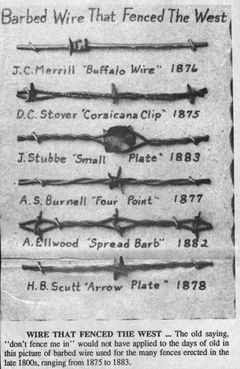Difference between revisions of "The site of execution"
| Line 10: | Line 10: | ||
===ver0.2=== | ===ver0.2=== | ||
[[Exe0.2_Eric_Snodgrass|sites of execution (ver0.2)]]: interstice // invisible hand | [[Exe0.2_Eric_Snodgrass|sites of execution (ver0.2)]]: interstice // invisible hand // interface | ||
Revision as of 20:57, 18 April 2016
//some ongoing notes on execution for *.exe (ver0.1) meetup
//executioner: eric snodgrass
//part of the Critical Software Thing group
ver0.1
sites of execution (ver0.1): instruction pointer // pincer // skin
ver0.2
sites of execution (ver0.2): interstice // invisible hand // interface
bits&bobs
Harold Abelson and Gerald Jay Sussman with Julie Sussman, Structure and Interpretation of Computer Programs (2nd ed.): “The pc register determines the sequencing of instructions as the machine runs. This sequencing is implemented by the internal procedure execute. In the simulation model, each machine instruction is a data structure that includes a procedure of no arguments, called the instruction execution procedure, such that calling this procedure simulates executing the instruction. As the simulation runs, pc points to the place in the instruction sequence beginning with the next instruction to be executed. Execute gets that instruction, executes it by calling the instruction execution procedure, and repeats this cycle until there are no more instructions to execute (i.e., until pc points to the end of the instruction sequence).” (section 5.21 - The Machine Model)
W. S. Gilbert & Arthur Sullivan, "Behold The Lord High Executioner Lyrics," from The Mikado (1885): (Chorus:) "Defer, defer, To the Lord High Executioner!"
"Let us look at an event that acquired an emblematic significance in the literature on barbed wire: the exhibition in San Antonio in 1876. . . Part of the central plaza next to San Fernando Cathedral was surrounded by barbed wire fences, and dozens of fierce-looking longhorn bulls were packed into this space. Here is the view to have greeted you, stepping out of the cathedral: the animals deliberately frightened and provoked; they charge against the fence and are repulsed by the sheer pain of sharp metal tearing flesh; they are wounded, and their wounds exacerbate their rage; further charges, further pain, and instinctive withdrawal; finally, resignation. The spectacle was indeed symbolic: it showed how, without the slightest touch by humans, the fiercest, and at that point least domesticated, bovine animals could be made to respect a definition of boundary. . ." (Reviel Netz, Barbed Wire-an ecology of modernity, 2004, p.30-1).
skin...pain...shift...expansion of barbed wire from sites of cattle production to Boer Wars to concentration camps
Netz (p.35) on projective, contagious topologies: "While it is possible in principle to have barbs arranged so that thyey point in just one direction, it is far simpler to have them double pointed, so that the wire can be made "blindly," without figuring how the barbs precisely fit. In other words, the topology does not distinguish "inside" from "outside"-violence is projected both ways. In a very real way, barbed wire is contagious: by enclosing a space, it is thereby automatically present in all areas bordering on that space."
execution(threshold,distinction,isolation,enclosure,executability,trigger,encounter,imposition,transduction,contagion)
